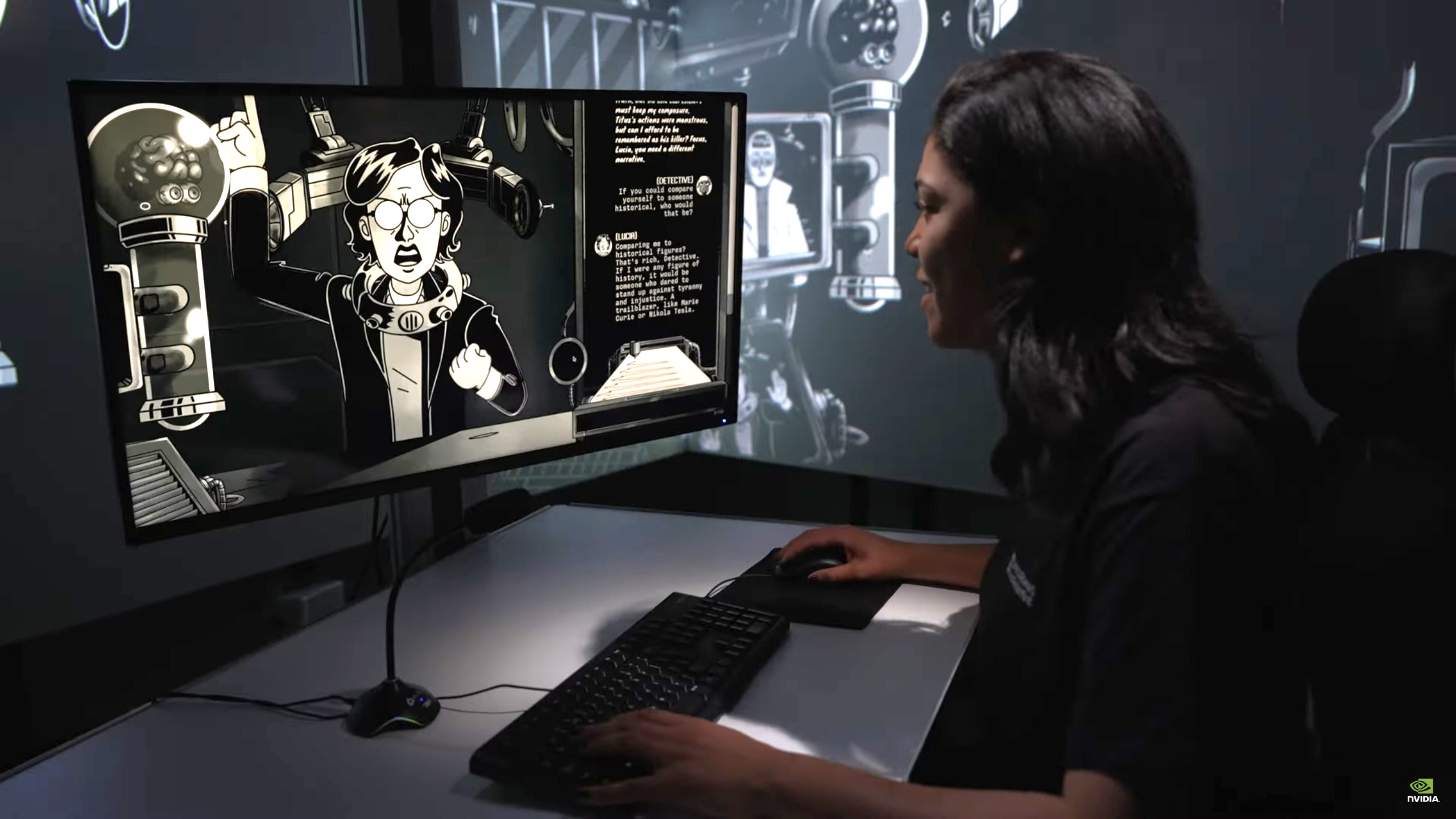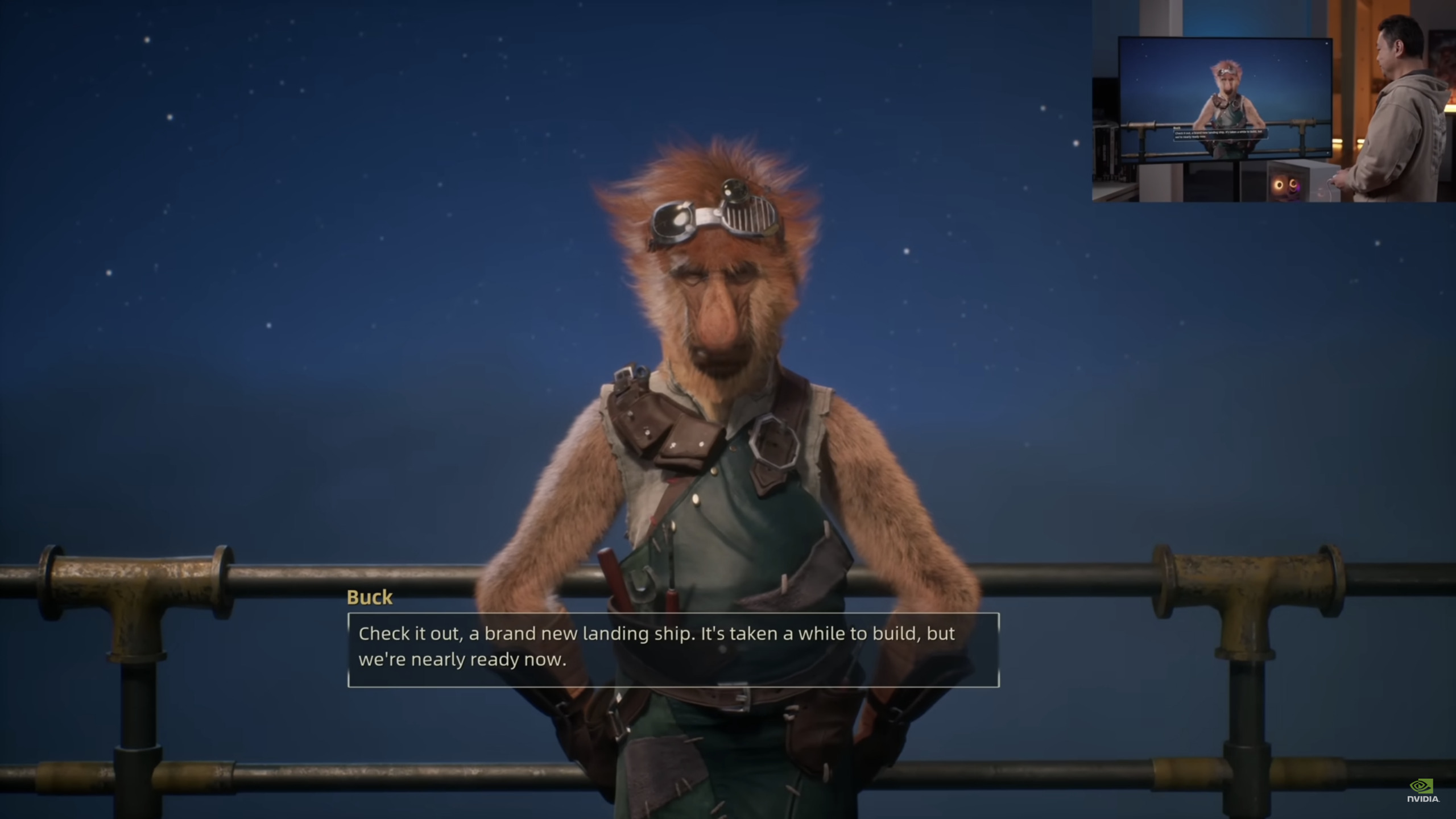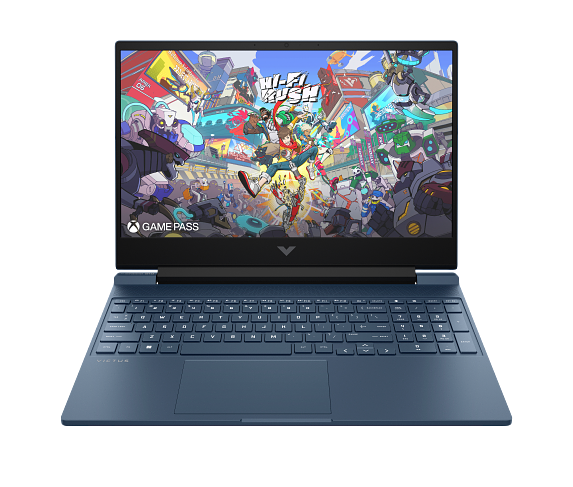Why Nvidia's big bet on AI NPC's has me unconvinced
AI has a place in gaming, but this isn't it

The future of gaming is rife with lifelike non-player characters powered by generative AI models — or that's what Nvidia thinks, at least.
At CES 2025, Nvidia released a series of demos for new AI tools and features for gaming powered by Nvidia's RTX 50-series GPUs. They range from AI audio editing for streamers to unpredictable "AI bosses," but the one that stands out the most to me is AI NPCs that are meant to supplant human-written dialogue with a chatbot.
Nvidia is clearly betting big on AI becoming omnipresent in gaming, especially generative AI, but whether gamers actually follow suit on that vision is another question entirely. I'm personally betting the answer is no, and here are a few major reasons why.
The promise and pitfalls of "AI NPCs"

Rumors and hype around "AI NPCs" in games have been bubbling for years now, but they have yet to truly materialize. Nvidia is trying to change that with an AI model called Nvidia ACE.
In a demo for ACE, Tao Zhang, CEO of TiGames, plays an tech demo for a "future project" called ZooPunk, where he interacts with an NPC running on Nvidia ACE and uses it to customize his ship. Zhang is able to talk to the NPC using his voice, rather than scripted dialogue options, and it replies with AI-generated lines.
At first glance, that sounds cool, but unfortunately, the way it actually sounds in the demo is less impressive. The AI NPC's dialogue is stiff, robotic, and hollow. It reminds me more of an automated voice mailbox message than an actual human. While it's a neat concept, it's a far cry from what human voice actors are capable of.
An upcoming indie title, Dead Meat, is another great example. This game has players interrogate suspects in a murder mystery. Players can ask the NPCs any question they want and the NPCs respond with AI-generated dialogue.
Stay in the know with Laptop Mag
Get our in-depth reviews, helpful tips, great deals, and the biggest news stories delivered to your inbox.
On paper, this seems like it could be a clever way to use AI for NPCs. However, the generated dialogue shown in a demo video is firmly in the uncanny valley. It definitely still sounds like an AI, besides leaving me wondering how the game maintains the consistency needed for something as complicated as a murder mystery.
Of course, it's certainly possible this technology will improve over the next few years. Maybe the lines will sound more natural or the AI-generated voices will sound less cold and robotic. Even if that does end up happening, it still might not be enough to make AI NPCs the new norm.
On a more practical level, I'm doubtful about how useful unscripted NPCs are in many types of games, especially RPGs and story-driven titles. NPCs are often how players get quests, learn important lore, or experience key plot points. The specific dialogue lines written for an NPC can be crucial to the story or even the basic functions of a game.
Sometimes NPCs' dialogue can be so well-written that it has a real emotional impact on the player. Star Wars: Jedi: Fallen Order is a prime example for me. It's one of my favorite games, partly because of the meaningful interactions Cal Kestis has with the cast of NPCs. Another great example is Tales of Kenzera: ZAU, in which emotional bonds and arcs with NPCs are a core pillar to the game's phenomenal, meaningful ending.
NPC interactions, and their emotional weight, are the result of intentional writing decisions, not something that can be randomly generated by an AI (or effectively delivered by one). Is it really worth losing that to have slightly less repetitive conversations with shopkeeper NPCs? I don't think so.
Are AI NPCs the future of gaming? Probably not.

One of my favorite games is The Outer Worlds (which is set to get a sequel this year). Whenever I recommend it to a friend, I always mention how much I love one of the companion NPCs, Parvati. It's not just me, either. Parvati is widely beloved by fans of the game thanks to her lovable personality and surprisingly deep, unique character arc.
Notably, Parvati is not AI-generated.
NPCs like her play a major role in the fabric of their games and play a major role in the communities that rally around those games. Whenever I shower praise on Parvati to a friend, it's partly because I'm excited for them to experience her story, too.
That kind of shared experience could disappear in a world where NPCs run on AI-generated dialogue. Two people could witness drastically different NPCs that have the same name and face but little else in common, not to mention completely different stories. That leaves less ground for a shared love and appreciation for elements of the game or story.
Plus, you lose the intentional artistic decisions that go into crafting an NPC's character arc and thoughtfully acting out their lines.
Video games are a creative art form. AI can be a tool in the artistic tool box, but it's not a replacement for the artist. Using AI to streamline game development or optimize hardware makes sense and has a net positive impact on the gaming experience. However, replacing nuanced, engaging NPCs with hollow AI chatbots, in my opinion, has a net negative impact and could strip away a vital part of any great game.
More from Laptop Mag
- Could Nvidia's AI bosses steal the soul of Soulsborne games?
- Nvidia's RTX 5090 still can't game in 4K without DLSS 4
- I'm a veteran laptop reviewer. Here are my top 10 laptops of CES 2025

Stevie Bonifield is a freelance tech journalist who has written for PC Gamer, Tom's Guide, and Laptop Mag on everything from gaming to smartwatches. Outside of writing, Stevie loves indie games, TTRPGs, and building way too many custom keyboards.











